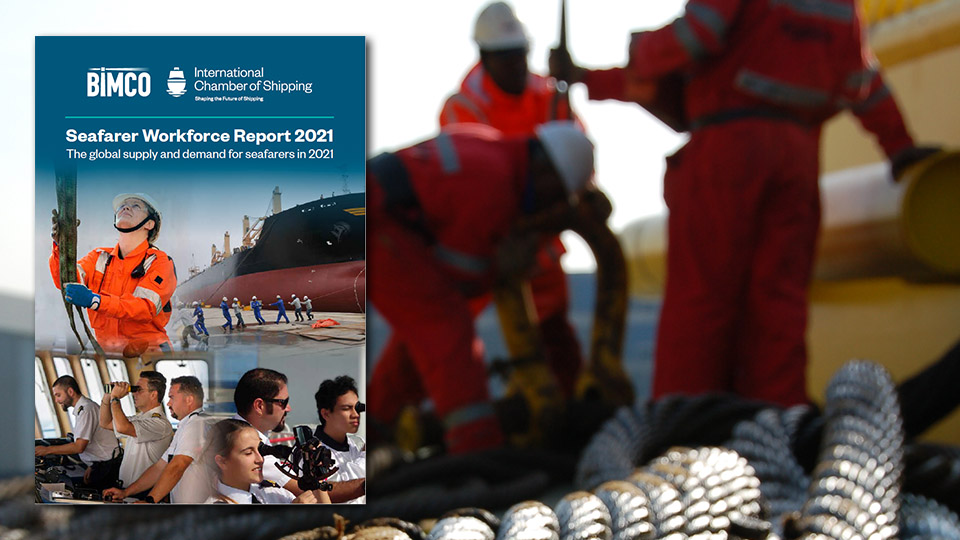Smooth e-Navigation at NCSR 4
Overview
The session took place 6 to 10 March 2017 in London. It was a very busy meeting with a large agenda, but all 90 papers were discussed in detail and some important decisions were taken.
BIMCO is pleased to see the start of the results from the IMO’s’ e-navigation Strategy Implementation Plan (SIP). The SIP contains a list of tasks requiring development:
- improved, harmonised and user-friendly bridge designs
- means for standardised and automated reporting
- improved reliability, resilience and integrity of bridge equipment and navigation information
- integration and presentation of available information in graphical displays received via communication equipment
- improved Communication of Vessel Traffic Service (VTS) Service Portfolio.
The following gives a brief overview of the outcome of NCSR 4.
Ship reporting
The revision of the “Guidelines and Criteria for Ship Reporting Systems” was finalised. The old guidelines, as set out in resolution MSC 43(64), were revised to ensure that ships can use electronic means to report to the shore side. IMO has adopted a number of mandatory ship reporting systems explaining what information ships should provide to a coastal state, or a Vessel Traffic Service (VTS) systems, established by the IMO. Today, reporting between the ship and shore, is to a large extent, done verbally and in the future, communication can also be done by electronic means. This is positive as it will reduce the administrative burdens on board.
The revised guidelines instruct on how to plan and propose a new ship reporting system to the IMO. Member states must fulfil specific requirements before the Maritime Safety Committee (MSC) can adopt such systems. The guidelines include provisions on cyber risk management. The revised guidelines will be sent to the MSC for adoption.
Data modelling
The IMO has designated Maritime Service Portfolios (MSP) as the future means of providing digital ship-to-shore and shore-to-ship information. The IMO e-Navigation concept is supported by other maritime organisations such as the International Hydrographic Organisation (IHO), the International Association of Lighthouse Authorities (IALA) and BIMCO. Sixteen MSPs have been designated by the IMO.
The following MSPs fall within the scope of IHO responsibilities:
- MSP 5—Maritime Safety Information (MSI) Service
- MSP 11—Nautical Chart Service
- MSP 12—Nautical Publications Service
- MSP 13—Ice Navigation Service
- MSP 15—Real-time Hydrographic and Environmental Service.
The following MSPs fall within the scope of IALA responsibilities:
- MSP 1—VTS Information Service (IS)
- MSP 2—Navigational Assistance Service (NAS)
- MSP 3—Traffic Organization Service (TOS)
- MSP 4—Local Port Service (LPS).
NSCR decided to recommend to the MSC to initiate a new working group on harmonising data modelling. The group will be named the IMO/IHO Harmonization Group on Data Modelling (HGDM). BIMCO plan to be part of this work.
Integrated navigational systems
The purpose of an Integrated Navigation System (INS) is to enhance the safety of navigation by providing integrated and expanded functions for bridge equipment. By combining and integrating functions and information, the INS provides added value for the officer of the watch to plan, and monitor the progress of the ship. The INS evaluate inputs from several sources. The combination of the sources provides information, timely alerts to dangerous situations and system failures to the officer of the watch.
NCSR discussed the development of additional modules to the Performance Standards for Integrated Navigational Systems (resolution MSC 252(83). The discussion however, did not reach the stage where a decision could be made at this session. Instead, a correspondence group (CG) was proposed. The CG aim to identify the scope of issues relevant for the development of an additional module - related to the display of information only. BIMCO will participate in the CG which will report to NCSR 6.
Amendment of SOLAS Chapter IV
The Global Maritime Distress and Safety System (GMDSS) is designed to automate the way ships give distress signals by radio. The basic concept of the GMDSS is that search and rescue (SAR) authorities ashore, as well as ships in the immediate vicinity of the ship in distress, will be alerted by a push of a button so that they can carry out a coordinated SAR operation.
The sub-committee agreed to amend the SOLAS Convention chapter IV and to accommodate new mobile satellite systems recognised for use in the GMDSS. Owners will thus soon be able to use other satellite providers, other than Inmarsat, in the future. The amendments will be sent to be adopted by the MSC.
Position, navigation and time (PNT) data
New guidelines associated with multi-system shipborne radio navigation receivers, dealing with the harmonised provision of position, navigation and time (PNT) data and information, were finalised ready to be sent to the MSC for adoption.
PNT data needs to be resilient because it is used for navigational purposes and in onboard equipment such as Automatic Identification System (AIS), Electronic Chart Display Information System (ECDIS) and Integrated Navigation System (INS). Reliability is therefore very important for the safety of navigation.
Feedback or a question about this information?
VPS Bunker Alerts
Veritas Petroleum Services (VPS) publish regular Bunker Alerts based entirely on fuel samples and have kindly permitted BIMCO’s Members to access this information.
The Bunker Alerts are not intended to be an evaluation of overall bunker quality in the port or area concerned, but usually highlight a specific parameter within the fuel which has raised a quality issue.
Latest ice reports for members
Latest piracy reports
Latest industry releasable threats
ELSEWHERE ON BIMCO
Contracts & Clauses
All of BIMCO's most widely used contracts and clauses as well as advice on managing charters and business partners.
Learn about your cargo
For general guidance and information on cargo-related queries.
BIMCO Publications
Want to buy or download a BIMCO publication? Use the link to get access to the ballast water management guide, the ship master’s security manual and many other publications.
About a new business partner
We can help members check new business partners. We also help to recover millions of USD (undisputed) funds every year.




